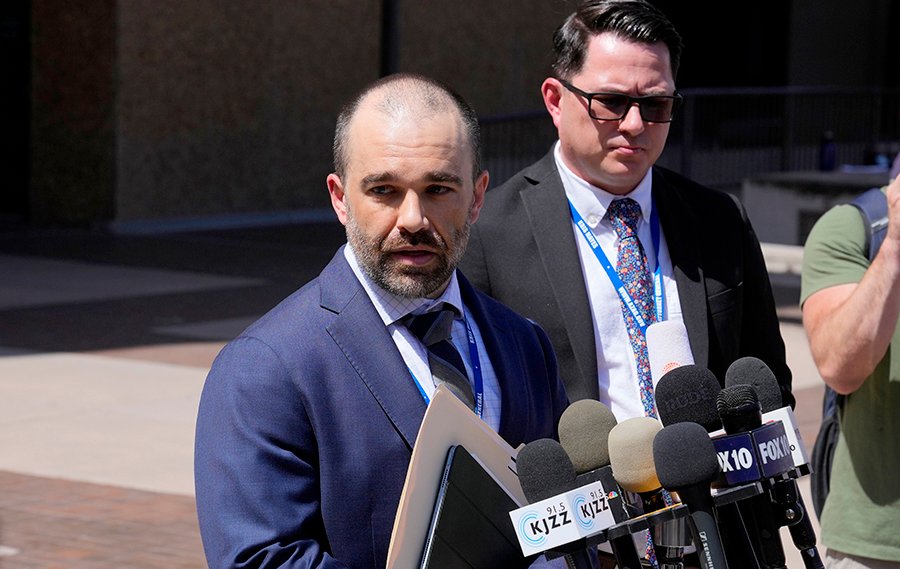Fashion
State Takes Stand Against Alleged Fake Electors, Declares Non-Political Motive

In a recent development, Attorney General Kris Mayes revealed that her office advised the state grand jury against indicting Donald Trump in the fake elector scheme. This disclosure emerged from newly released documents as Mayes aims to persuade Maricopa County Superior Court Judge Bruce Cohen to dismiss charges against several defendants in the case.
Defendants argue they are being prosecuted for voicing their political views, citing the state’s Strategic Lawsuit Against Public Participation (SLAPP) law. This law is designed to prevent officials from using the courts to suppress speech on political matters, which the defendants claim is the core issue at hand.
However, Assistant Attorney General Nicholas Klingerman stated that Mayes’ actions were not politically motivated. He pointed out that the grand jury had the discretion to indict or not, independent of any influence from the Attorney General’s office. Despite the grand jury’s interest, Mayes requested they consider not indicting Trump, leading to him being named an “unindicted co-conspirator.”
The grand jury eventually indicted 11 fake electors and seven others related to Trump’s 2020 campaign on charges ranging from conspiracy to fraud. The scheme involved efforts to present fake electoral certifications, suggesting Trump won Arizona’s popular vote and should receive its 11 electoral votes.
Klingerman also emphasized that other prominent figures, including 30 Republican legislators, were not indicted. These legislators had signed a document falsely claiming to be a joint resolution of the Legislature, sent to Congress to support the forged electoral certificates. Despite this, Mayes’ office advised the grand jury to offer these legislators the benefit of the doubt.
One fake elector, Loraine Pellegrino, agreed to a plea deal, receiving unsupervised probation for filing a false instrument. This has led to speculation whether her cooperation will aid in convicting others involved.
Requests to dismiss the indictment hinge on various arguments, including First Amendment protections and claims of political retaliation. Defendants like former state GOP Chair Kelli Ward and her husband argue their actions were protected political speech. Nevertheless, Klingerman maintains these arguments are insufficient to quash the indictment.
Mayes’ office reiterated that prosecuting election crimes, even those involving political figures, does not infringe on constitutional rights. The grand jury was cautioned against broad indictments, focusing only on the 18 charges that were substantiated.
Finally, considerations were made about overlapping federal and state actions. Trump had already faced federal charges related to preventing the peaceful transfer of power, influencing the grand jury’s restraint in indicting him further at the state level.
The grand jury’s findings underscore that the conspirators knowingly misrepresented themselves as Arizona’s “duly elected” presidential electors. The indictment claims this intent was part of a broader campaign to overturn the election results in favor of Trump, despite all legal challenges failing.
Klingerman argued that accepting the defendants’ actions as protected by the First Amendment would undermine the foundation of criminal law, emphasizing the necessity of these prosecutions to maintain justice and electoral integrity.


















